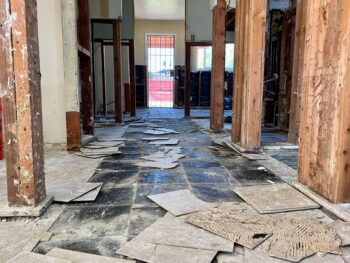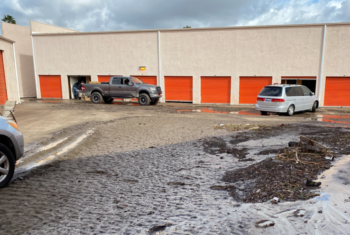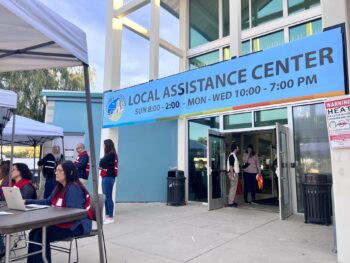By definition, disasters are chaotic and frightening. Now imagine what it would look like to someone with autism, Alzheimer’s disease, or someone who is developmentally disabled. The goal of emergency planners is to make the experience more reassuring and less confusing for everyone.
County and city emergency managers, and representatives from response organizations such as the American Red Cross and daily service providers met Thursday to find better ways to serve people with cognitive and behavioral disabilities during a disaster. Approximately 100 people attended the Access and Functional Needs (AFN) Conference in Mission Bay sponsored by The San Diego County Office of Emergency Services, the American Red Cross and the County Health and Human Services Agency.
Office of Emergency Services Director Holly Crawford thanked those who attended and reminded them that their input is important.
“Last year, one of the suggestions that came out of the conference was the concept of the Access and Functional Needs Working Group, which was established last year, and is still going strong,” said Crawford. “The County of San Diego is integrating Access and Functional Needs into our disaster planning – and that includes welcoming members of the AFN community in the planning process.”
Crawford said the county has launched a new Accessible AlertSanDiego notification system that will send emergency alerts to electronic devices in American Sign Language or text for the deaf, hard of hearing or deaf-blind community. In a disaster, an AFN Coordinator will work in the County’s Emergency Operations Center to coordinate access and functional needs at feeding sites, shelters and Local Assistance Centers, she said.
Andy McKellar, director for the American Red Cross San Diego-Imperial Counties said the hope is that the people at the conference will use their expertise to help create a template for dealing with various developmentally disabled groups. That template can then be used to help train first responders locally and possibly can be shared with the state or nationally.
“It worked really well with the last conference. Groups started talking to each other and they formed the AFN group out of that. It’s really helped with our understanding of dealing with people with physical disabilities; now let’s do the same thing with intellectual disabilities. How do we gain that understanding? We gain it by talking to each other,” said McKellar.





